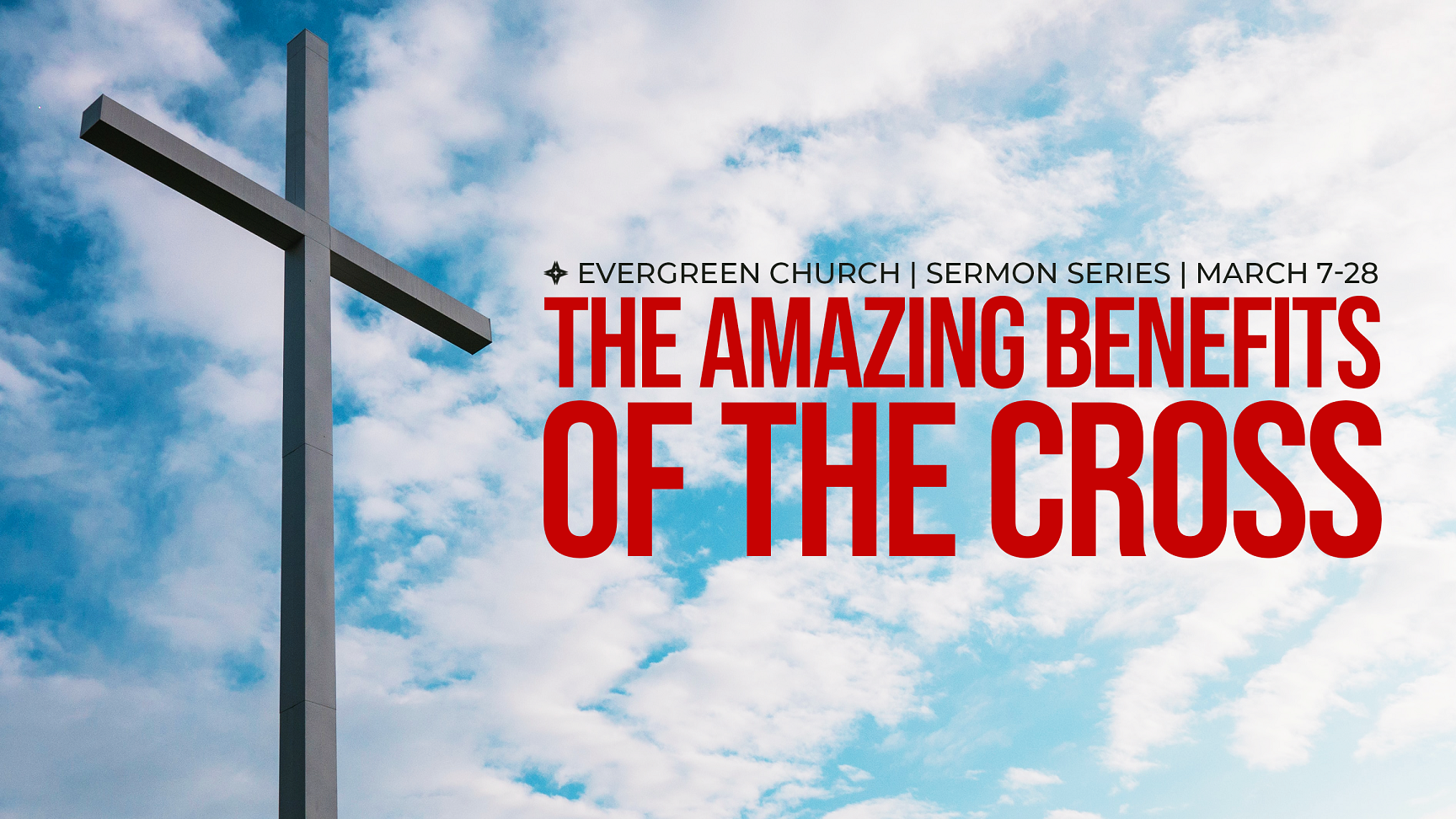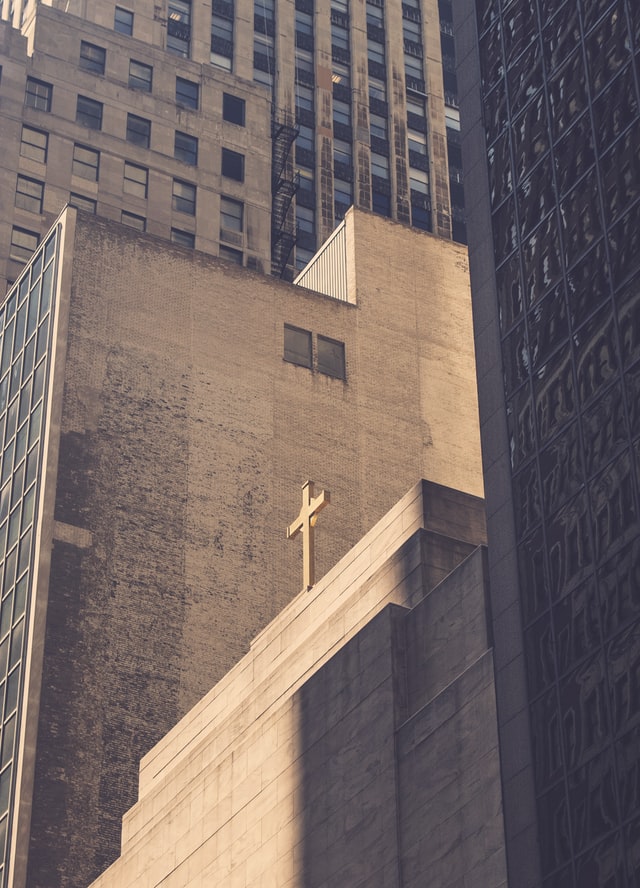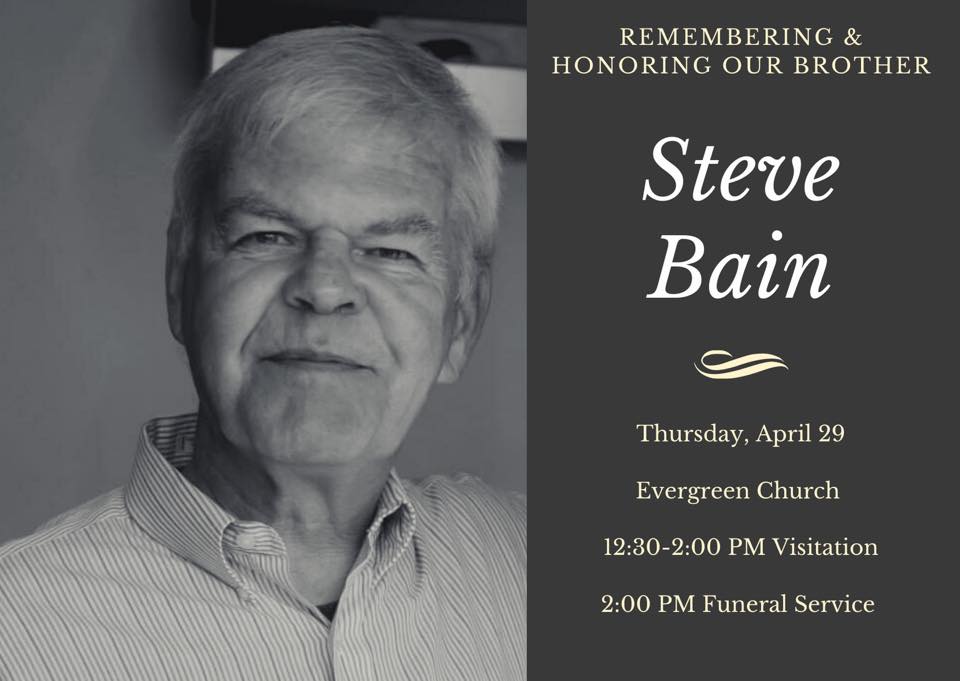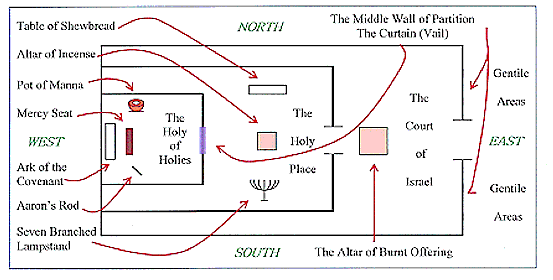
[Listen to an audio version here]
Do you ever find yourself doing things you don’t really want to do? Do you know what is right and find yourself unable to do it? Do you ever get stuck in some bad pattern or relationship? This is human life. It is not good but also not uncommon.
Sometimes these bad things get so ingrained in us that we do terrible things. They drive us to do things that leave us scarred for life. At other times, the patterns get so deep that we can’t seem to get out. This is the destructive force of addictions.
What are we to do? The cross is the answer. Today, we look at the benefit of the cross we call “sanctification.” The word “sanctification” comes from the Latin “sanctus.” From that word, we get our words “saint” or “sanctuary.” It means holy. This refers to God’s perfect and transcendent purity and beauty. He shines over the universe like the sun in the sky in absolute glory.
The cross provides a power that enables us to put the old ways in the past and restore our true humanity. It is a power that enables us to live a new life that is good, pure, holy, and right. Sanctification is about transformation, life change, as people often call it. This is what is described in this passage, Romans 6:1–14, so let’s consider it together.
The Context of Transformation
This passage begins with a question. “What shall we say, then? Shall we go on sinning so that grace may increase?” (Rom. 6:1). Now, why would Paul say this? It’s what he has said in Romans 5 that might lead someone to ask this. He says, the sin of human beings gave God the occasion to do something greater even than creating. It gave Him the opportunity to redeem humans back from sin and death. Here’s what he says in Romans 5:20–21: “But where sin increased, grace increased all the more, so that, just as sin reigned in death, so also grace might reign through righteousness to bring eternal life through Jesus Christ our Lord.” So, why not go on sinning, then, so that we might get even more grace?
Look at this another way, and you will see the common question people have about the cross and its benefits. We looked at two of the amazing benefits of the cross. The first was justification. This means we get declared righteous freely because Christ’s righteousness is counted as ours. We stand before God perfect and complete in Christ’s righteousness, fully forgiven of all our sins. The second amazing benefit is adoption. This means that we are adopted into His family and become sons and daughters of God through the merit of the agonizing death of Christ on the cross. He pays everything, and we get everything. These are the amazing benefits of the cross.
In light of that, someone might ask, since we are completely forgiven and accepted in spite of what we have done, are doing, or will do as a free gift of grace, then why worry about how we live? Why worry about being transformed?
Well, there are a lot of reasons why we should live the right way besides being justified by our works. It’s good to live the right way because it is the right way to live. It benefits us, blesses others, testifies to Christ, and glorifies God. It puts us in harmony with the universe. So, there’s a lot of reasons.
But here is the reason that Paul gives. Shall we go on sinning? “By no means! We are those who have died to sin; how can we live in it any longer?” (Rom. 6:2).
In order to understand this, let’s think about our situation without the cross. Without the cross, we have the law. The law is holy, just, and good, but we are not. We have sinned. We continue to sin. We sink deeper and deeper into sin. The only thing we can expect is wrath and judgment. Without the cross, the destiny of the human race would be what the prophet Zephaniah describes: “In the fire of his jealousy the whole earth will be consumed,
for he will make a sudden end of all who live on the earth” (v. 18). It would be a hopeless situation. We would simply be stuck under the law, under sin, and under wrath.
But we do have the cross! Christ came into the world, was born under the law, took our sin upon Himself, and died the accursed death on the cross.
But that is not the end! After three days, He rose again from the dead. His resurrection meant that He had defeated death, cancelled our debt to the law, and overcame the power of sin. It was a new beginning for the human race.
The Power for Transformation
Now, this power for transformation becomes ours when we are united to Jesus Christ by faith. Here’s what Paul says, “Or don’t you know that all of us who were baptized into Christ Jesus were baptized into his death?” (Rom. 6:3). When we came to faith in Jesus, we were baptized into Christ. It is the outward sign and confirmation of our union with Him. This means that we are united to Him in His death to sin.
Of course, we not only die to sin, but we rise to a new life: “We were therefore buried with him through baptism into death in order that, just as Christ was raised from the dead through the glory of the Father, we too may live a new life” (Rom. 6:4). What this means is that Christ’s death and resurrection are at work in us to enable us to die to sin and live a new life. He says, “For if we have been united with him in a death like his, we will certainly also be united with him in a resurrection like his” (Rom. 6:5). This refers to resurrection from the dead ways of sin and the resurrection of our body at the end of time. The point here is that the same power that was at work in Christ to overcome sin is now working in us because we are united to Him.
In a way, His crucifixion is our crucifixion. We die to the old self and to the old world. “For we know that our old self was crucified with him so that the body ruled by sin might be done away with, that we should no longer be slaves to sin—because anyone who has died has been set free from sin” (Rom. 6:6–7). The basic problem of this world is that we live as if we are the center of the universe rather than God. That’s the problem behind all the problems. It is a fundamental pride that exalts ourselves beyond measure. When we come to Christ, that old self that places “I” at the center is shattered, and we have a new life that is in and through Christ.
Paul underlines this point in Romans 6:8–10, “Now if we died with Christ, we believe that we will also live with him. For we know that since Christ was raised from the dead, he cannot die again; death no longer has mastery over him. The death he died, he died to sin once for all; but the life he lives, he lives to God.” Christ died to sin. It can never claim mastery over Him again. There will never need to be another crucifixion of Christ. He has died to the world of sin and risen to new life, and so have we. We have now risen to a new life in Him.
That’s why our church’s confession, the Westminster Confession of Faith says that this transformation occurs “through the virtue (or the power) of Christ’s death and resurrection.”
Now, the question that comes up is, if this is all the case, then why do Christians still sin? Paul clearly recognizes that they do sin. Let us make a distinction here between the power of sin and the presence of sin. The power or dominion of sin is broken, but the presence of sin is not eradicated.
What this means is that there is no sin that we should look at and say, I cannot overcome this. We have the power of Christ in us. It does not need to rule in us. The power of Christ is available to overcome it. It will not have dominion over you because you are not under law but under grace!
Let me illustrate how this works out. I remember so clearly one day back in Spearfish, SD where I was struggling with bitterness against a particular group of people. I was on the south side of the church moving the hose to water the grass in that dry environment. I prayed to the Lord and asked Him to help me with that bitterness. All of a sudden, I was transformed. The bitterness was completely gone. I have never struggled with it again. It was instantaneous. It was the power of Christ.
Sometimes the Lord, though, works through a longer process. One Pastor described to me his experience of going on Facebook for the first time. He began to reconnect with his friends and interact with them cordially. They were amazed. They all said, “When we knew you many year ago, you were such a jerk!” He was then amazed. He realized that Christ had been transforming him, but the work was so gradual and so long that he didn’t really see how the power of Christ had transformed him until he got that feedback. So, Christ is at work in us, transforming us in a variety of ways. The amazing benefit of the cross is that it has broken the power of sin so that we can live a new life.
At the same time, there will never be a point where we can say that we are absolutely free from sin and have arrived. There will always be reason to say what Paul says in Romans 7, “O wretched man that I am! Who will deliver me from this body of death? Praise be to God through Jesus Christ!” There will never be a time in this life where we do not have to battle against sin. And that leads us to our final point.
Cooperating in Our Transformation
Our Shorter Catechism calls justification and adoption an act of God’s grace. This means it is an act that God does at once. It is simply a gift, and we receive that act by faith. We get adopted and justified when we believe in Christ. Our Catechism calls sanctification a work not an act. This benefit of the cross is different. Sanctification is a work that takes place over time.
Sanctification is also different in that we cooperate in this work. We join what God is doing in transforming our lives. We have a role to play under God. We lean into His work in our lives. Listen to how Paul describes this in our passage. “In the same way, count yourselves dead to sin but alive to God in Christ Jesus” (Rom. 6:11). We are to change our mindset in how we view sin. We are also to battle against it: “Therefore do not let sin reign in your mortal body so that you obey its evil desires” (Rom. 6:12). You are not “to offer any part of yourself to sin as an instrument of wickedness, but rather offer yourselves to God as those who have been brought from death to life; and offer every part of yourself to him as an instrument of righteousness” (Rom. 6:13). We offer ourselves to God, we fight against sin, and we change our mindset to take in what Christ has for us.
How do we do all this? How do we join what God is doing in our lives? We pray and ask Him to change us. We read His Word and partake of the sacraments and let them change the way we think about things, like Paul does in this passage. Note that he refers to our baptism and says that it should change the way we think about things. We fight against the old habits. We seek to establish new ones.
And note, in the cooperation we do with our transformation, we are not and should not be alone. We engage the help of other people. We cooperate together in fighting against sin by being accountable to each other; by encouraging each other; by rebuking each other, when necessary; and by praying for each other. We have a part to play, a part completely dependent on Christ, but a real part, in the work of our transformation. This is true in our lives and in the lives of others.
So, in our battle against sin, we should not despair. We have the power of Christ; we have tools for transformation, the means of grace; and we have the church of God to help us.
Conclusion
The amazing benefit of the cross is because Christ died this terrible death by crucifixion on the cross, the power of sin is broken, and we rise to a new life. The cross tells us that the old habits and the old ways of life do not have to define us. We have died to them and can move forward to live a godly and productive life. There is power for transformation in the cross. That is an amazing benefit indeed. Thanks be to God for His indescribable gift.





